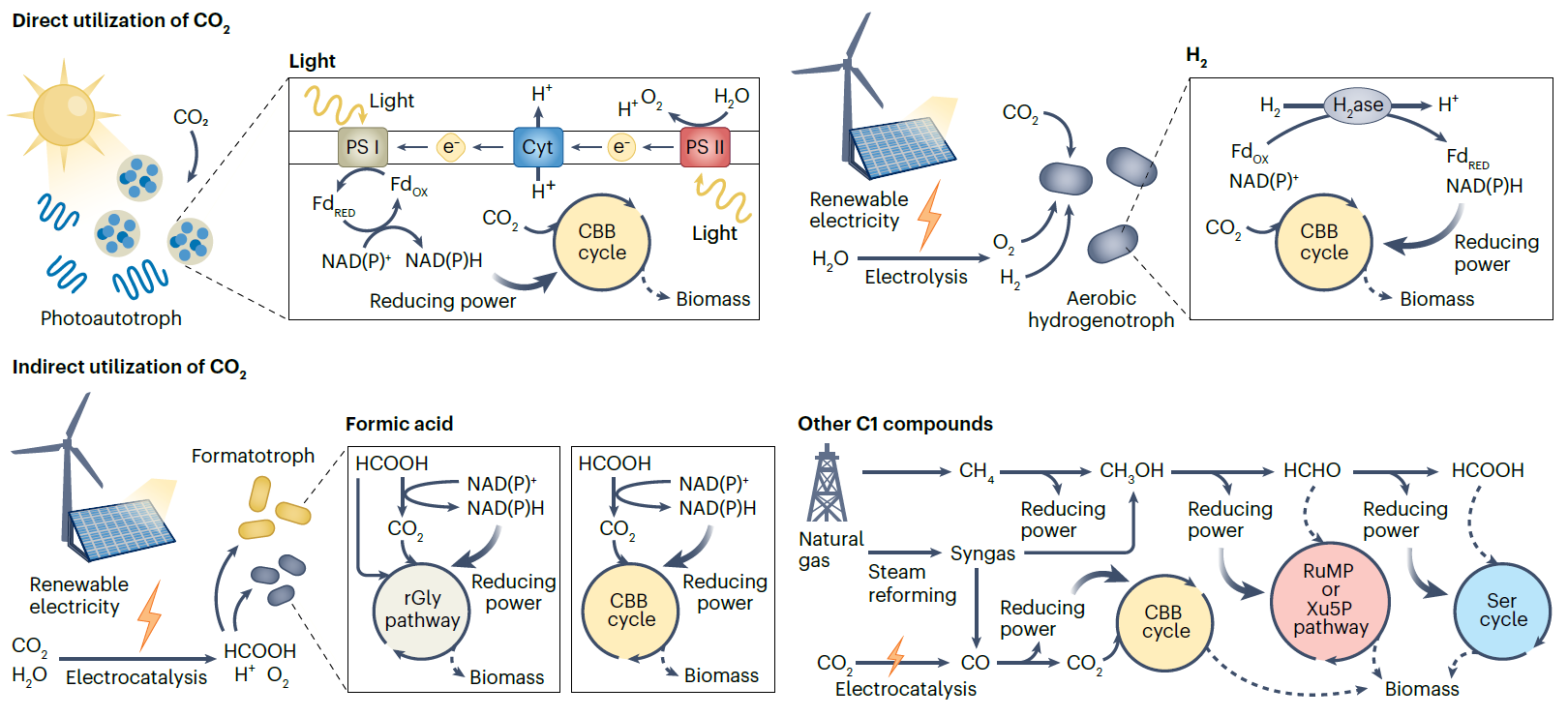The global food crisis is increasing due to rapid population growth and declining food productivity as a result of climate change. Moreover, today's food production and supply system emits a huge amount of carbon dioxide, reaching 30 % of the total amount emitted by humanity, aggravating climate change. To help combat this concern, sustainable and nutritious microbial food has become a plausible solution.
 Schematic diagram portraying various microbial biomass production strategies utilizing sustainable feedstocks. Image Credit: Korea Advanced Institute of Science & Technology
Schematic diagram portraying various microbial biomass production strategies utilizing sustainable feedstocks. Image Credit: Korea Advanced Institute of Science & Technology
On April 12th, 2024, KAIST (President Kwang Hyung Lee) announced that Research Professor Kyeong Rok Choi from the BioProcess Engineering Research Center and Distinguished Professor Sang Yup Lee from the Department of Chemical and Biomolecular Engineering have jointly published a paper. This paper outlines a research direction focused on "microbial food production from sustainable raw materials."
Microbial food refers to a range of foods and ingredients crafted using microorganisms. Microbial biomass contains a large amount of protein per unit in dry mass, comparable to that of meat, and emits the smallest amount of carbon dioxide and is required to produce a unit mass compared to various livestock, fish, shellfish, and crops. Moreover, microbial food production requires minimal water and space, making it an environmentally friendly, sustainable, and highly nutritious food resource with significant potential in the market.
Fermented foods are regarded as the most readily available microbial foods. Although the proportion of microbial biomass in fermented foods is small, compounds with relatively low nutritional value, such as carbohydrates, are consumed during the fermentation process, and as microorganisms proliferate, the content of nutrients with higher nutritional value, such as proteins and vitamins, increases.
Microbial food also includes various food compounds that are isolated and purified from biomass or culture media derived from microbial cultures. Common examples found in everyday products include amino acids like monosodium glutamate, food proteins, enzymes, flavor compounds, food colorings, and bioactive substances.
The most fundamental form of microbial food is considered to be microbial biomass or extracts derived from microbial culture and foods prepared using them. Single-cell protein, which encompasses both microbial biomass and the proteins extracted from it, serves as a prime example.
In this paper, the researchers thoroughly explored a variety of non-edible raw materials and strategies for employing them in the production of microbial food, emphasizing sustainability. Additionally, it discussed the various microbial foods that were manufactured in the industry using these raw materials, detailing their characteristics. The paper also considered the future potential for the production and widespread adoption of sustainable microbial foods.
Microbial foods produced from various sustainable raw materials will soon be commonly encountered at our tables.
Kyeong Rok Choi, Study First Author and Research Professor, Korea Advanced Institute of Science & Technology
“Microbial foods of the future will not be limited foods consumed only out of a sense of obligation to the environment, but will be complete foods that are consumed by choice because of their nutritional value and taste,” adds Second author Seok Yeong Jung, a Doctoral Student.
It is time for the industry and academia, as well as the public and private sectors, to cooperate more closely so that more diverse microbial foods can be developed and supplied in order to create a sustainable society for ourselves and our descendants.
Sang Yup Lee, Distinguished Professor, Korea Advanced Institute of Science & Technology
Journal Reference:
Choi, K. R., et al. (2024). From sustainable feedstocks to microbial foods. Nature Microbiology. doi.org/10.1038/s41564-024-01671-4.